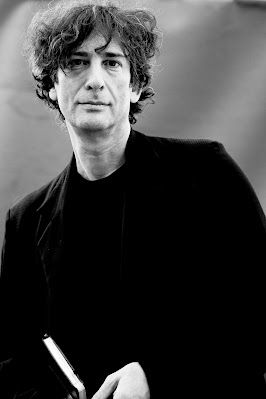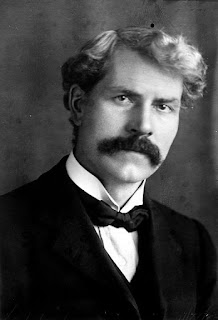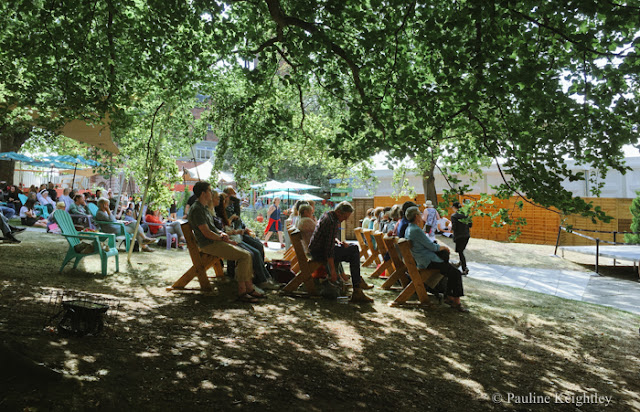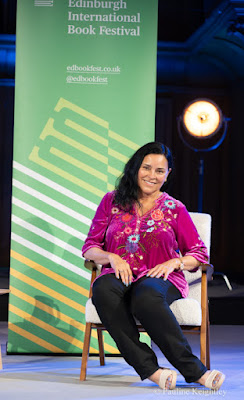It’s the Poetry we’ll remember
Channel four foreign news correspondent gave a talk at Edinburgh international book festival 2025, on her book I Brought the War with me, about her poetry in times of war. She always carries a book of poetry with her. After her horrific experiences of fighting in Rwanda, she felt she needed philosophical more than psychological help.
She says that people remember the great poets of the world wars, and not the journalists reports.
When in Ukraine in 2022, at a town called Izium, she stood beside an apartment block split apart by a missile. Fifty four people had been killed in the Russian attack six months before.
"Purple and yellow wild flowers were growing in the rubble that filled the chasm between the two parts of the block. It is not the houses. It is the space between the houses,” I thought. “It is not the streets that exist. It is the streets that no longer exist.”
She then thought of James Fenton 1981 poem A German Requiem, about selective memory in the second world war.
It is not your memories which haunt you.
It is not what you have written down.
It is what you have forgotten, what you must forget.
What you must go on forgetting all your life.
“The idea that the spaces between the houses symbolised gaps in memory, and that forgetting might be essential if people were to live together in peace,
Poetry helps us see parallels with the past, and puts up a mirror to our fears.
Hilsum spoke of her often traumatic experiences covering many foreign wars over her 40 years of experience…” Many journalists are resilient, and – at least for now – I would count myself as fortunate in this regard. Witnessing the suffering of others, surviving danger and experiencing grief are all profound experiences, to which nightmares, anger, tears and bouts of despondency are all normal, human responses. They are not necessarily signs of a clinical condition.”
She explained that Poets don’t have the answers. But they may help us understand our own actions and reactions and find a way through the darkness.
She got into reporting via aid work in Central America in the 70s. ‘I didn’t really know that war was brewing across the region – my concern was social justice, and, at 20 years old, I just wanted to have an adventure and change the world. (I succeeded in the former but not – needless to say – in the latter.) In 1982, I moved to Kenya to work for the UN International Children’s Emergency Fund, Unicef.
She realised her main skill was to pivot to journalism. “Reality overcame the illusions I harboured. Nearly every country neighbouring Kenya – Uganda, Sudan, Somalia, Ethiopia – was going through civil war… I found that while reporting on people in war zones was at times upsetting and occasionally terrifying, it was also rewarding and exciting. I felt that I was living through history as it happened. Later, I was lucky enough to get a job with Channel 4 News, based in London, and while I have never been exclusively a war correspondent, I have spent a lot of my career reporting conflict”
She spoke of the great war poets, and said that many war poems are written by women. “I am drawn to what Wilfred Owen described as: “The pity of war, the pity war distilled.”
Hilsum, was handed a rose in Velyka Novosilka, eastern Ukraine, by Oleksiy, who was cycling across town to see his friend, at the start of the Ukrainian counter-offensive in June 2023.”
“ journalism is ephemeral. We rarely read the stories written by reporters who covered the first and second world wars. We do, of course, read the poetry. They focus on what is critical now – this village taken, that truce broken, a new atrocity by occupying forces. But poets through the ages have turned the horror of war into transcendent works of beauty and meaning.
The late Irish musician Frank Harte said: “Those in power write the history; those who suffer write the songs.”
This is an extract from I Brought the War with Me by Lindsey Hilsum, which is published by Chatto & Windus on 19 September (£16.99).
II Extract from her memoir, she explains why her own words were not always enough
My TV news report reflected some of this, but it did not have the allusive power of the poem.
“In my nearly four decades as a foreign correspondent, I have always carried a book of poetry with me. While the images we show have great impact, I feel that journalistic language sometimes fails to convey the intensity of the experience. Maybe Fenton’s poetry resonates with me because he was a war correspondent as well as a poet – he sees what I see but has found a more compelling way of expressing it, as if he is working in three dimensions while I am stuck in two. We journalists pride ourselves on the clarity of our prose and on making complex stories simple. That’s our job – to explain why terrible things are happening and to challenge the euphemisms used by politicians and military spokespeople. We also try to convey the thoughts and feelings of the people we meet, and a sense of what it feels like to be on the ground. Yet we may lose the deeper meaning, the universal import of what we have witnessed or the contradictory emotions that war engenders.”
She got into reporting via aid work in Central America in the 70s. "I didn’t really know that war was brewing across the region – my concern was social justice, and, at 20 years old, I just wanted to have an adventure and change the world. (I succeeded in the former but not – needless to say – in the latter.) In 1982, I moved to Kenya to work for the UN International Children’s Emergency Fund, Unicef."
War gives your life purpose and meaning… the colours are brighter and the mountains clearer
She spoke of her personal reporting of war zones – “The lives of those who have had war visited upon them, the children, conscripts and civilians, are desperate and miserable. But those who visit war – aid workers, journalists, military volunteers – share a secret. War gives your life purpose and meaning."
Suddenly you believe you know what matters and what can be dismissed as unimportant. The colours are brighter and the mountains clearer. You live in the moment.”
This is an extract from I Brought the War with Me by Lindsey Hilsum, which is published by Chatto & Windus on 19 September (£16.99).






.jpg)
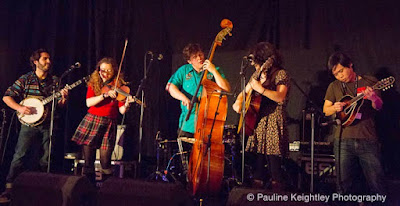.jpg)



.jpg)




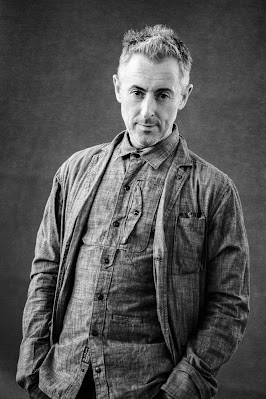

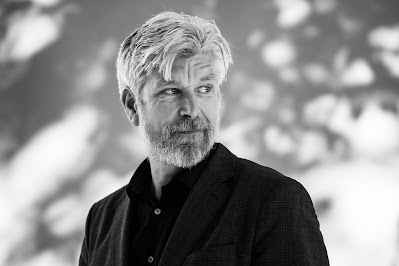
.jpg)

